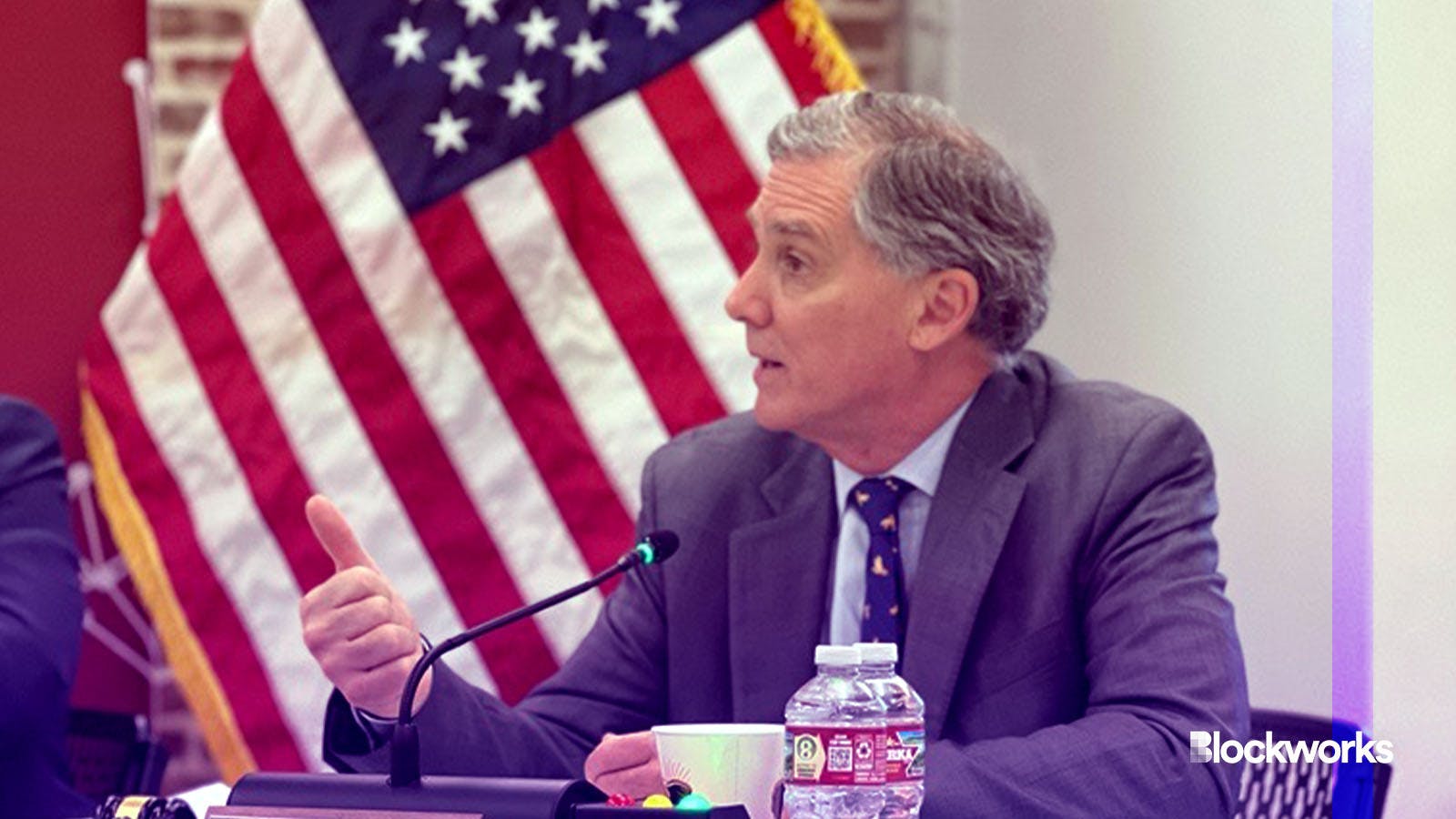DEBT Box loss shows SEC ‘overreach and failure,’ Hill says
The SEC was sanctioned in its case against DEBT Box earlier this week

US Congressman French Hill | Congressman French Hill Facebook page modified by Blockworks
In a hearing on Capitol Hill, lawmakers considered whether or not the Securities and Exchange Commission needs reform.
Representative French Hill, R-AR, brought up the SEC’s recent court loss in its case against Debt Box.
The case, in which the defendants claimed that the SEC lied to freeze company assets, was a loss for the regulatory agency after the Utah-based judge sanctioned the agency.
“Just in the last few days, a Utah judge imposed sanctions on the SEC for ‘bad faith conduct’ and ‘gross abuse of power’ that the Commission had demonstrated in a case against Debt box. And this is important because we haven’t talked about this in a long time on this Committee, and as a result of power, the Commission is required to pay the legal fees, which means the constituent tax dollars are now being used to pay for the SEC overreach and failure,” Hill said.
Read more: DEBT Box defendants say SEC’s deception impacted personal, business endeavors
“The SEC, under Gary Gensler, blatantly and repeatedly oversteps its statutory authority,” Hill continued.
While the hearing itself wasn’t focused solely on the agency’s actions against crypto companies or about its general approach to crypto, other crypto-related actions were brought up.
John Gulliver, the executive director of the Committee on Capital Markets Regulation, was asked about SAB 121 — the agency’s Staff Accounting Bill — which would seek to require digital asset custodians to report so-called “corresponding assets” and liabilities on balance sheets for custodied cryptocurrencies.
The SEC’s staff previously said that it would help to mitigate “risks and uncertainties” around safeguarding crypto assets. The House Financial Services Committee passed a resolution to appeal SAB 121 last month.
Gulliver said that the SEC should “rescind SAB 121.”
“SAB 121 is extremely harmful to investors in crypto markets. They’d benefit from having custody from well-regulated financial institutions, and SAB 121 prevents it,” he continued. Instead, he added, the SEC should focus on rules that could allow for the regulation of crypto exchanges.
Cato Institute’s Jennifer Schulp said that the SEC’s current regulatory approach is the “wrong one” because it drives business for newer technologies — including AI and crypto — overseas.
The current approach, she added, makes the regulatory environment both uncertain and “downright hostile.”
Start your day with top crypto insights from David Canellis and Katherine Ross. Subscribe to the Empire newsletter.





